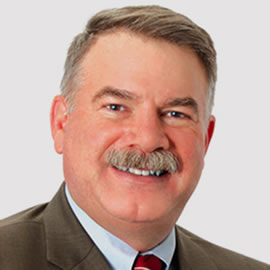“Misinformation or distrust of vaccines can be like a contagion that can spread as fast as measles.” – Theresa Tam
Theresa Tam serves as Canada’s Chief Public Health Officer. Like many public health officials during the COVID-19 pandemic, Dr. Tam was the focus of considerable criticism of her recommendations as the virus spread. Health officials worldwide tried to guide the public on responding to the virus based on few facts. At the time, the virus was new and barely understood. There was no vaccination and little science regarding the COVID-19 virus. Fortunately for all of us, much has improved regarding our understanding and treatment of COVID and other respiratory viruses.
I stumbled upon Tam’s comment regarding misinformation breeding distrust of vaccinations while looking for information regarding the new vaccination for the respiratory syncytial (sin-SISH-uhl) virus or RSV. As I mentioned last month, my mother-in-law died unexpectedly. She had been struggling with RSV infection which likely contributed to her health difficulties. I was dismayed to learn that despite both my wife’s parents being in their eighties, none of their healthcare providers ever recommended RSV vaccination.
Two versions of the RSV are currently available: Arexvy by GSK and Abrysvo by Pfizer. The Centers for Disease Control and Prevention (CDC) have recommended RSV vaccination for pregnant women, infants, some small children, and adults 60 years and older. Older adults with other pre-existing conditions, such as chronic heart or lung disease (my mother-in-law had both), weakened immune systems, or other respiratory conditions, should receive the RSV vaccine. Along with the Flu and COVID vaccinations, these lifesaving injections should be a routine consideration for anyone over 60 (I resemble this remark since I turn 60 this year).
The dangers of these viruses that rage in our population have been spelled out plainly in my life. I finally succumbed to COVID-19 infection in September of last year, and I am currently recovering from pneumonia as I write this. I was diagnosed with pneumonia from a chest x-ray, and I believe it was a secondary infection following my own RSV infection. I cannot be sure since the southern emergency clinic I visited did not bother to purchase any adult RSV tests (my COVID-19 test was negative). My respiratory viral illness that led to pneumonia began following a cruise ship family reunion/vacation. Although I had an incredible time with my extended family, I find cruise ships to be floating Petri dishes for respiratory illness (I have gotten sick on three out of three cruise trips). I do not blame the cruise line since they made every effort to enforce good cleanliness habits throughout the vessel. This even included an Elvis impersonator at mealtime telling cruisers to “Washy-washy before yummy-yummy!” I could not make this stuff up. Nevertheless, despite these hygienic efforts, many of my family members became ill following this cruise. You cannot throw 2,000 strangers from all over the world into a confined space and not pick up an unwanted beastie. Our best defense against these ubiquitous diseases is our own immune systems beefed up with vaccinations. Vaccination science is a medical miracle.
The politics and misinformation that seem to permeate vaccination medicine are genuinely baffling. I cringe at the countless lives sacrificed by unscrupulous politicians who sow doubt and lies to obtain some perverse political advantage. Sadly, it seems to be the nature of politicians to act this way. I guess you cannot blame the snake for its fangs; it is their nature. On the other hand, I cannot forgive the clinicians who fail to inform themselves and their patients regarding the latest vaccine science. If the CDC makes a recommendation, at the very least, this should stimulate a conversation between clinicians and their patients to make an informed decision together regarding vaccination. I realize some patients will avoid vaccinations as a point of political pride, as is their misguided right. It is unconscionable that a patient would succumb to a virus with an existing vaccination because their clinician failed to inform them of the vaccine’s existence. Physicians, unlike politicians, are held to a higher standard.
These conversations between clinicians and patients regarding vaccination are literally a matter of life and death. I also am not interested in a clinician disagreeing with the CDC. If a physician has better science regarding a vaccination’s use, put it out; otherwise, keep your politically motivated opinions to yourself. The physician must present the best available medical science and let the patient decide what is in their self-interest. Medicine is the science of improving health through the application of empirical facts. Politics is, well, I wish we had a vaccination for politics.
A patient’s vaccination state is as important as their vital signs. Reviewing a patient’s vaccination history is essential to any health check-up. The current rates of vaccination in this country are appalling. I see this as a collective failure within the United States health system. I hope this editorial will stimulate readers to redouble their efforts in understanding vaccination science and provide that information to their patients dispassionately. To do otherwise is indefensible.


